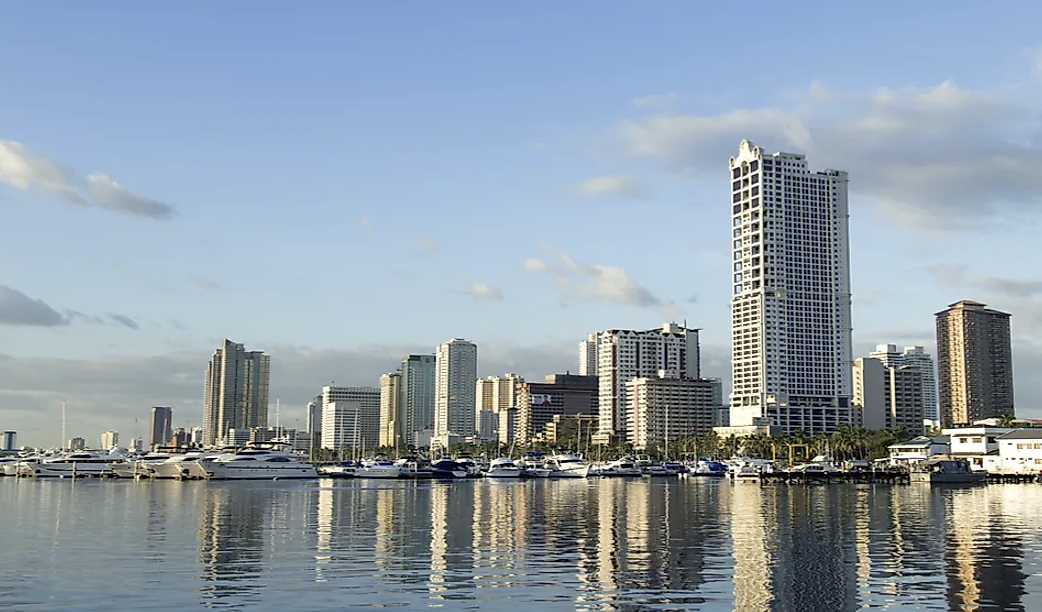Buying real estate in the Philippines can be an exciting venture, but it’s crucial to ensure that the property you’re interested in has a clean and legitimate title.
Checking the land title is a vital step in the due diligence process that can save you from potential legal headaches and financial losses down the road.
We’ll walk you through the steps to verify property ownership in the Philippines, so you can invest with confidence.
Why Check Your Land Title?
Even if you know and trust the seller, it’s always wise to verify the property’s current status and details instead of taking their word for it. This is especially true if you’re dealing with a stranger.
Checking the land title can uncover any potential issues tied to the property that could negatively impact your rights as the future owner.
Common issues that can arise with land ownership in the Philippines include:
- Adverse claims, where someone besides the owner claims to have a right or shared interest in the registered land
- Lis pendens, meaning the land is currently part of an ongoing legal action
- Mortgage annotations, where the property was used as collateral for a loan
- Lease contracts, where the seller has rented the property to another party
- Restrictions from the National Housing Authority that prevent sale to non-legal heirs
- Other liens and encumbrances like easements or rights of way
Uncovering any of these issues early on through a detailed title verification can save you major legal troubles later.
Now, let’s dive into the different types of land titles in the Philippines.
Original Certificate of Title vs. Transfer Certificate of Title
There are two key documents to understand when it comes to land ownership in the Philippines:
- Original Certificate of Title (OCT) – Issued by the government when state-owned land is sold to a private party for the first time. It serves as the initial proof of private ownership.
- Transfer Certificate of Title (TCT) – Issued subsequent to the OCT whenever the property is sold and ownership is transferred. The TCT cancels the previous owner’s title. It contains the same technical details as the OCT plus the names of the seller (transferor) and buyer (transferee).

Checking the land title is a vital step in the due diligence process that can save you from potential legal headaches and financial losses down the road.
Most properties will have a TCT, unless you’re buying land directly from the government, which is rare.
With this foundation, let’s look at what you’ll need to check a land title.
Preparing to Check a Philippines Land Title
Before beginning the title verification process, gather the following information:
- Title number to help trace the document in official records
- Exact name of the registered property owner
- Property address to validate the title’s authenticity
- Registry of Deeds location where the title was originally issued
- Photocopy of the title, if available (the seller should have the original Owner’s Duplicate Copy)
Having these details ready will make the process much smoother. You can obtain most of this information from the property seller.
4 Steps to Verify Land Ownership
With your documentation in order, follow these steps to check the land title:
1. Obtain a Certified True Copy of the Title from the Registry of Deeds
Visit the Registry of Deeds office that originally issued the title. Present the title number, owner’s name, and property address, along with a valid government ID and the necessary fees.
Afterwards, the Registry of Deeds office will provide you with a Certified True Copy of the title for verification.
2. Compare the Certified True Copy Against the Original
The certified true copy from the Registry of Deeds should match the original Owner’s Duplicate Copy presented by the seller.
Ensure that the OCT or TCT number, owner’s name, property technical details, and other information are all consistent.
3. Verify the Title with the Land Registration Authority (LRA)
As an extra safeguard, you can cross-check the title with the LRA, the national agency overseeing land registration.
The LRA can certify any title’s authenticity and also whether the property has any liens, encumbrances or other annotations. There’s a small fee for this service though.
4. Conduct a Property Title Search
For even greater peace of mind, you can opt for a professional title search.
Legal professionals can perform a comprehensive check on the history of the property and all past ownership transfers and encumbrances.
While this service comes at a cost, it provides the highest level of assurance.

Even if you know and trust the seller, it’s always wise to verify the property’s current status and details instead of taking their word for it.
Places to Verify Land Titles in the Philippines
There are three main avenues to verify land titles:
Land Registration Authority (LRA) or Registry of Deeds Offices
The LRA and local Registry of Deeds offices are the official repositories of land titles. They can provide certified true copies, certifications on the title’s authenticity, and details on encumbrances, annotations and transactions.
Online Through the LRA eSerbisyo Portal
For convenience, you can request a certified true copy of the title online through the LRA’s eSerbisyo portal (eserbisyo.lra.gov.ph).
You’ll need to create an account and provide the Registry of Deeds location, title type (OCT, TCT, or CCT) and the title number. Fees start at Php645 for two pages.
Via a Professional Title Search
Lawyers and other legal professionals can navigate government records and registries to thoroughly vet a property’s title and history.
This is the most comprehensive, albeit costly, option. It’s recommended for high-value transactions.
Titles for Inherited Properties
In the Philippines, verifying titles for inherited properties can get complex, especially if the estate has not been formally settled or the title has not been transferred to the heirs.
The property may be titled under the original owner who has passed away.
In this case, you’ll need to check if there is an existing will, extrajudicial settlement, or court order specifying the heirs and how the property will be divided.
The heirs can then have the title transferred to their names by presenting the death certificate and settlement documents to the Registry of Deeds.
If you’re buying from an heir, make sure this process is completed before closing the sale.
Titles for Property Owned by Companies
If the property you’re eyeing is owned by a corporation, you’ll need to verify not just the land title but also the company’s papers.
Make sure the corporation is legitimate and duly registered with the Securities and Exchange Commission (SEC).
You can request copies of the company’s articles of incorporation, by-laws, and other pertinent documents from the SEC.
Check if the person dealing with you is authorized to act on behalf of the company, usually through a board resolution or secretary’s certificate.
Risks of Buying Real Estate in the Philippines
Due diligence is crucial when buying any type of home in the Philippines – perhaps even moreso than other countries in Asia.
You shouldn’t ever just rely on the land title. Make sure to check zoning classifications, building permits, tax declarations, and other compliance documents.
It’s wise to engage a local lawyer who can perform due diligence on your behalf. They can also advise you on any foreign ownership restrictions, as foreigners generally aren’t allowed to own land in the Philippines at all.
Tons of inefficiency and corruption exists in some parts of government. Likewise, crime remains an issue in several cities, and it directly harms GDP growth.

Whether as a local or foreign investor, due diligence is crucial when buying property in the Philippines.
Foreigners can own condo units, apartments, or part of any multistory building in the Philippines. The only limit is that the total number of foreign owned units in a single building cannot exceed 40%.
You can’t truly own land as a foreigner though. Land ownership is reserved for local citizens only.
Foreigners can even buy houses and other buildings under their own name. However, the land any structure sits on must either be owned by a Philippine citizen. Land can be leased for up to 50 years which is extendable for yet another 25.
It’s worth noting that the Philippines has rather high taxes especially for non-residents. Property is subject to an annual tax based on its appraised value.
The tax rate varies based on the district, but is capped at 1% for properties within Metro Manila and 2% for those outside the city.
Rental income is also subject to personal income tax of up to 32% for residents making over 500,000 PHP (around $10,000).
Yet none of this necessarily means investing in Philippines property is a bad idea. A rising population by itself means that, in the future, there will almost inevitably be more real estate demand in prime locations.
Remember, a clean title is non-negotiable. If you encounter any red flags or the seller is unable to produce the proper documents, it’s best to walk away from the deal.
You’ll always be able to find other properties for sale, but the costs of a bad title will haunt you indefinitely.
FAQs: Land Titles in the Philippines
Why are Original Certificate of Title and Transfer Certificate of Title Different?
The government issues an Original Certificate of Title (OCT) when state-owned land is initially sold to a private individual or entity, marking the first instance of private ownership. On the other hand, a Transfer Certificate of Title (TCT) is granted after the OCT whenever the property changes hands through a sale.
The TCT nullifies the previous owner's title and features identical technical information as the OCT, with the addition of the seller (transferor) and buyer's (transferee) names. Unless you're purchasing land straight from the government, which is uncommon, most properties will have a TCT.
How Can I Check Land Titles Online?
The Land Registration Authority's eSerbisyo portal (eserbisyo.lra.gov.ph) offers a convenient way to obtain a certified true copy of a land title online.
Simply create an account and input the Registry of Deeds location, title type (OCT, TCT, or CCT), and the specific title number. The fees begin at Php645 for a two-page document. This online platform allows for easy remote verification of land ownership particulars.
Where Can I Get an Original Copy of a Land Title?
To secure an original copy of a land title, go to the Registry of Deeds office that first issued the title. Submit the title number, owner's name, property address, a valid government ID, and pay the required fees.
The Registry of Deeds office will furnish you with a Certified True Copy of the title for authentication purposes. This certified copy should be identical to the original Owner's Duplicate Copy held by the seller. Double-check that all the specifics, such as the title number, owner's name, and property details, match between the two copies.







